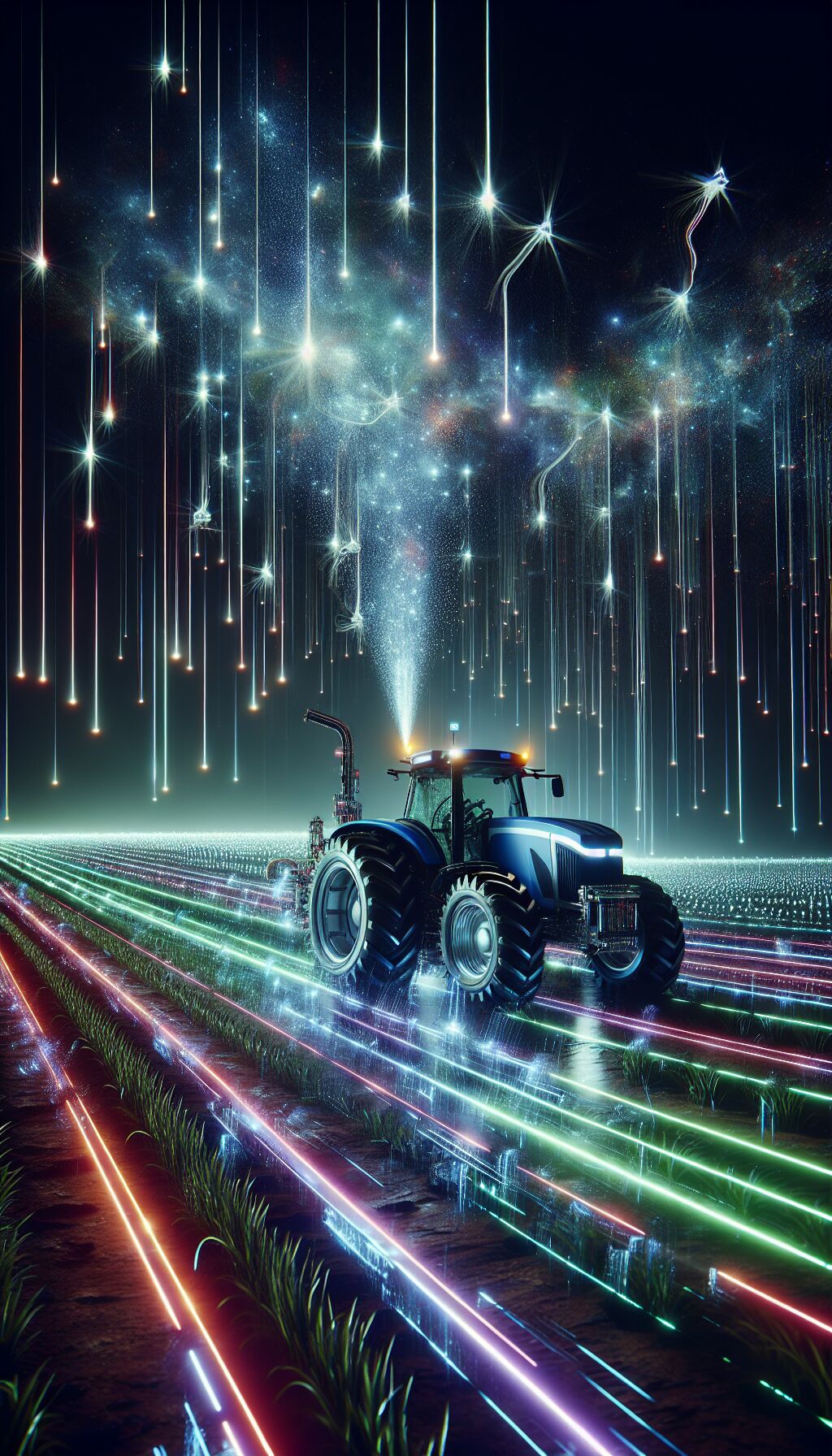Cybersecurity Threats in Agriculture: A Growing Concern
In recent years, cybersecurity has emerged as a critical topic of discussion globally. From claims of Chinese spy balloons hovering over domestic skies to major cyberattacks that crippled the operations of significant entities like an Appalachian oil pipeline, the need for robust cybersecurity measures has never been more apparent. Questions about suspicious drones seen over New Jersey have only added to the urgency of this issue. However, one area that often flies under the radar is the agriculture sector—an essential yet overlooked component of America’s infrastructure.
Geopolitical Significance of Agriculture
As political attention shifts towards agriculture, it is vital to recognize the unique vulnerabilities present within this sector. Dakota State University President Jose-Marie Griffiths spoke to Fox News Digital about the geopolitical significance of the heartland, particularly as several leaders from the Dakotas prepare to take on influential roles in Washington, D.C. Notably, Senator Mike Rounds (R-S.D.) will chair the Senate Armed Services Subcommittee on Cybersecurity, placing him in a pivotal position to address this pressing concern.
“I have long expressed my concerns regarding the agriculture and food production industry’s critical infrastructure, which has been slow to receive attention in the cybersecurity context,” Griffiths stated. The past few years have seen a surge in the adoption of technology within agriculture, with autonomous vehicles and satellite connections becoming commonplace. This evolution exposes new vulnerabilities that bad actors could exploit.
Vulnerabilities in Modern Agriculture
As farmers increasingly rely on technology—from GPS-guided tractors to automated harvesters—the risks associated with these advancements also increase. Griffiths noted that agricultural vehicles are now more connected than ever, making them susceptible to hacking and cyber threats. The interconnected nature of modern farming equipment poses significant risks not only to individual farms but also to the broader agricultural supply chain.
“People are beginning to realize that devices connected to broadband and satellite are more vulnerable to cyber attacks,” Griffiths explained. Whether it’s harvesting potatoes in Pennsylvania or wheat in the Dakotas, every sector faces similar challenges. Elected officials and industry experts alike must recognize that agriculture has now become a focal point for cybersecurity vulnerabilities.
Infrastructure and Cybersecurity Concerns
Senator Rounds has been studying potential cybersecurity threats within American agriculture for some time. He emphasized that the risks extend beyond just vehicles. “The infrastructure we depend on, including water and electrical systems, are all connected and present multiple cyber points of entry,” he said. Given that these systems are critical to agricultural operations, their vulnerabilities present a serious risk.
The senator also warned of adversaries seeking to infiltrate these systems, noting, “We have been vigilant in identifying where threats may originate and how to mitigate them.” This vigilance is crucial as foreign actors become increasingly skilled at exploiting weaknesses within America’s critical infrastructure.
The Role of Emerging Technologies
As technology continues to evolve, so do the tools used by cybercriminals. Rounds highlighted the example of Huawei, a Chinese telecommunications company that has supplied hardware to rural telecom entities. The potential for embedded malicious code within such devices raises significant alarms for national security.
“Once we discovered that these devices could be compromised, we took immediate action to have them removed,” Rounds stated, emphasizing the need for ongoing vigilance in monitoring foreign technologies that may pose risks.
Moreover, the adoption of drones in agriculture presents new challenges. As Rounds pointed out, “Drones are increasingly used for monitoring crops and soil conditions, but they too can become targets for cyber interference.” The implications of hacking autonomous farming equipment could disrupt everything from planting to harvesting, ultimately impacting the economy at large.
The Future of Agriculture in an Automated World
As agricultural systems evolve, so too must our understanding of the risks inherent within them. Rounds noted that as the industry continues to move towards automation due to a lack of manpower, we will see a greater reliance on sophisticated machinery. “We will see more autonomous vehicles in farming because the industry is driven by efficiency. Machinery will not only become larger but also more advanced,” he said.
The potential for cyberattacks on this technological infrastructure is significant. If such systems were to fail or be compromised, the consequences could be dire. “We rely on autonomous systems for the delivery of resources, and any major disruption could affect the entire supply chain,” Rounds warned.
The Landscape of Cybersecurity Preparedness
Amit Yoran, CEO of cybersecurity firm Tenable, recently testified before the House Homeland Security Committee regarding cyber threats to critical infrastructure, including agriculture. Yoran explained that, “There is no one-size-fits-all defense strategy that can address cybersecurity effectively across sectors.” This highlights the urgency for a tailored approach to cybersecurity in agriculture.
“Some critical infrastructure providers are well-prepared, employing robust risk management practices,” Yoran noted. “However, others are not adequately equipped to handle potential threats.” This disparity in preparedness necessitates a concerted effort from policymakers, industry leaders, and cybersecurity experts to establish stronger protections for agriculture.
Conclusion: A Wake-Up Call for Agriculture
As the agricultural sector faces increasing threats from cyber adversaries, it is critical for leaders in government and industry to prioritize these vulnerabilities. The technology integral to modern farming may enhance productivity, but it also opens new avenues for attack. Recognizing and addressing these risks is essential for safeguarding America’s food supply and, ultimately, national security. The time for action is now, as the stakes are higher than ever.










